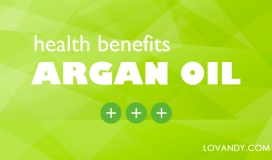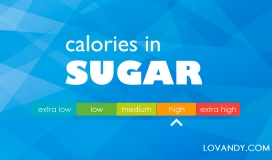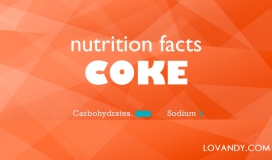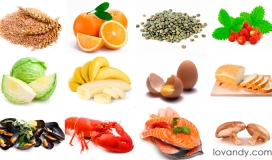Avocado is known to be a popular salad ingredient. This fruit is used in many other dishes as well for its unique nutrition. What is that so outstanding avocado can offer? Let us check it out!
Facts of Hass Avocado Nutrition
Despite the fact there are various sorts of avocado, the most popular and cheap one is hass. It is recognizable for its coarse rifle-green peel. The reason for hass avocado being so famous is the nutrition content. The sort takes first place amongst all others for the amount of vitamins it stores.
Microelements are represented in avocados quite widely: potassium (there is more of it in avocados than in bananas), sodium, calcium, phosphorus, manganese, magnesium, iron etc.
The fruit of avocado is rich in nutrients and at the same time is very caloric. There are approximately 250 calories in 100 grams of hass avocado. However, it does not contain harmful fats and sugars; therefore it is widely used in diets. In addition, its composition includes components, such as oleic acid, that stop the formation of cholesterol in the blood and split already accumulated one.
Minerals and Vitamins in Avocado
Probably, you have already figured out that the vitamin content of avocado is absolutely wide and full. Vitamins of B group take a huge part of a single fruit. For some of them there is almost 30% of your daily norm per 100 grams. Avocados also contain C, which is more than 10% and K – more than 15%.
Avocado is the record holder for vitamin E content, which promotes anti-aging protection of cells and stimulates their oxygen absorption. In addition, it includes natural hormones and other biologically active substances that have a rejuvenating effect on the human body. However, it is not only the amount of vitamins avocado contains, but its combination.
As for many other fruits, nutrients from avocado are easily absorbed by your body. It does not need any catalyst to receive almost 100% benefits of an intake.
The other cool thing about avocado is its benefits for skin. It is proved that the physical properties of avocado oil are similar to skin fat. That is why there are many masks and creams you can make yourself.
How Much Fat is There in Avocado?
If you look at avocado’s fat content, you will see that the percentage is huge for a fruit – more than 20% of a daily norm per 100 grams. It is a lot indeed, however, what kind of fat are we talking about?
What Kind of Fat is in Avocado?
It seems rather odd that such calorized fruit with a lot of fats is used in diets, doesn’t it? The thing is there are only polyunsaturated fatty acids. These substances are not stored in your body like fat itself. Vice versa, they help in normalizing weight.
Polyunsaturated fatty acids affect the metabolism in your body on the cellular level. They protect cells from premature aging and help preserve their genetic information. Moreover, such acids regulate the fat metabolism and vital activity of the beneficial bacteria that live in the intestine.
The amount of fatty acids is the biggest for hass avocado.
Therefore, it is common to add this fruit to a diet. This way you will not lose weight, but the metabolism will be normalized, which will lead to your diet being the most effective.
How Much Protein is There in Avocado?
Avocados are not something you will use to gain protein. It is only 8% of a daily norm. However, why do sportsmen add avocados to their diets? Well, the answer has been given a few rows above. Fatty acids make the body ready to absorb the most of vitamins and nutrients (proteins included). That is why you should combine avocado with protein diet, if you are willing to gain muscles.
On the other hand, if you only want to lose weight with some exercises, but not to gain any extra muscles, avocado is the best for you. You will get a lot of vitamins, while the lowest protein amount.
Avocado Nutrition Facts (per 1 Medium Avocado) (Glycemic index = 10)
| Name of avocado nutrition component | Content per 100 g | Content per 1 avocado | Percent of daily intake* |
|---|---|---|---|
| Proteins | 2.0 g | 3.6 g | 8.6% |
| Fats | 14.6 g | 26.3 g | 41.1% |
| Carbohydrates | 8.5 g | 15.3 g | 12.0% |
| Fiber | 6.7 g | 12.0 g | 60.0% |
| Calcium | 13.1 mg | 21.8 mg | 2.7% |
| Iron | 0.6 mg | 1 mg | 12.3% |
| Magnesium | 30 mg | 53.2 mg | 19.7% |
| Phosphorus | 52 mg | 93.6 mg | 16.1% |
| Potassium | 485 mg | 873 mg | 34.9% |
| Sodium | 7.1 mg | 12.8 mg | 1.0% |
| Zinc | 0.64 mg | 1.2 mg | 17.6% |
| Vitamin A | 7 µg | 13 µg | 2.6% |
| Vitamin B1 | 67 µg | 121 µg | 13.4% |
| Vitamin B2 | 130 µg | 234 µg | 26.2% |
| Vitamin B3 (PP) | 1.74 mg | 3.13 mg | 28.6% |
| Vitamin B5 | 1.39 mg | 2.5 mg | 50.0% |
| Vitamin B6 | 257 µg | 463 µg | 42.1% |
| Vitamin B9 | 81 µg | 146 µg | 36.5% |
| Vitamin B12 | – | – | – |
| Vitamin C | 11 mg | 19 mg | 30.0% |
| Vitamin E | 2.1 mg | 3.8 mg | 31.7% |
| Vitamin K | 21 µg | 38 µg | 31.7% |
* For 1 medium avocado, according to USDA.
Avocado is an extremely popular fruit for a diet. There is a whole lot of vitamins and nutrients it contains. Moreover, even though there are many fats, they do no harm to your weight, normalizing metabolism. Use the information provided to make your own diet ration, and do not forget to share it with us!














